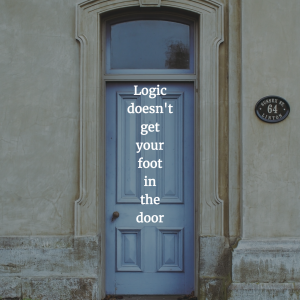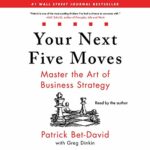The first step in any marketing plan is defining your value proposition. What are you promising to your customers? It has to improve their life in some way. Without clearly defining your value proposition your marketing efforts will fail.
(Really you should define your value proposition way before you start marketing–you should do it before you start your business.)
I have learned the hard way that not only is a clearly defined value proposition important but that it has to be the right value proposition. With one of my businesses I struggled finding the right value proposition and it suffered because of that.
The following are some value propositions that didn’t work:
Make you more efficient
 You’re proposing to save them time but, in order to do so, you’re asking them to sacrifice some of it to learn and use your product or service. In other words you’re asking them to do more work in order to do less work. Logically that works but logic doesn’t get your foot in the door. That is why you hear so much about marketing needing to appeal to emotions and explains why we have babies selling toilet paper on television.
You’re proposing to save them time but, in order to do so, you’re asking them to sacrifice some of it to learn and use your product or service. In other words you’re asking them to do more work in order to do less work. Logically that works but logic doesn’t get your foot in the door. That is why you hear so much about marketing needing to appeal to emotions and explains why we have babies selling toilet paper on television.
Help you streamline
This is essentially the same as the one above but I’m separating it because you often get a different objection. When you talk about streamlining the owner hears that you think you can run their business better than they can. They think, “I have been doing business the same way since you were in diapers. Who are you to try to change that?”
You can try to combat this by subtly planting the idea for streamlining in their head but doing so requires some masterful marketing techniques and generally requires those to happen over an extended period of time.
Save you money
This is one that I thought would be a winner but turned out not to be. A penny saved is a penny earned right? There are two common problems with using this approach. The first is that when somebody hears about saving money they immediately think of sacrifice. When it comes to internal office politics nobody wants to be the one to cut their budget as budget size often reflects which departments management thinks are important. Career wise it might not be a great move for your buyer to voluntarily save the company money.
The second reason this approach doesn’t work is that the person you are talking to isn’t spending their own money. When you are spending somebody else’s money you are much less likely to care about spending less it wisely.
The only true value proposition for businesses is:
My product will help you make more money
 At the end of the day the only thing that matters is money. Without it a business will die. That is why the promise of more of it is the only guaranteed way to make sure somebody listens. The words “increase”, “grow”, and “close” cause business owners’ ears to perk up.
At the end of the day the only thing that matters is money. Without it a business will die. That is why the promise of more of it is the only guaranteed way to make sure somebody listens. The words “increase”, “grow”, and “close” cause business owners’ ears to perk up.
Working those into your value proposition can be a challenge if your product or service lies outside their sales process. If your product increases operational efficiency then you can try framing your value proposition like this, “saves your sales people time so they can send more emails, make more calls, and close more deals.”
The bottom line is that promising people a dime if they give you a nickel is the only guaranteed way to make a sale so try to frame your value proposition in those terms.


